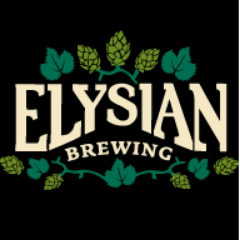
Cantwell, who also penned the second edition of The Brewers Association’s Guide to Starting Your Own Brewery divulged how to successfully assemble a team and a portfolio of brands. The prevailing theme: individual ego must be checked at the proverbial door.
Early on, Cantwell was pressed on how to fairly divvy up equity amongst partners in budding businesses based on each individual’s contributions.
“Partnerships are built on differing talents,” he said, before offering a brief history of Elysian. Cantwell said at the start of his brewery, which is based out of Seattle, Wash., each partner brought something distinctive to the table, making it hard to distinguish any way to fairly split equity, other than equally. One had the brewing experience (Cantwell). One “brought sort of the financial acumen.” The third was well versed in sales and marketing.
“I think the key is the trust and the recognition of mutual value,” he said. “I don’t know if you can put a dollar amount on that but it’s all about negotiations of percentages.”
“At times,” he added, “there are different views of what each of us is worth.”
That sense of self exists not only in the dissemination of dollars and cents, but with the distribution of actual beer, he added. Cantwell, when asked how to deal with struggling brands that may hold sentimental value to their brewers but simply don’t perform, emphasized how each brand must be evaluated objectively, setting aside the feelings of the people who worked to create the beer.
“There are egos involved,” he said. “You’ve got a beer that you totally believe in, maybe the brewer totally believes in it — and brewer ego is something that sort of has to be tamedÔǪ Ego has to be taken out of it. Objectivity has to rule.”
He said he has dealt with the issue personally, having had to reevaluate a brand that has earned the company accolades, but suffered in the marketplace. In developing a brand — or a whole lineup — brewers should champion not only what they’re proudest of in the portfolio, but also what has “the best commercial applicability.”
“We have an ESB that we’ve been brewing, it was the very first beer we brewed. It’s a terrific beer, we all love it, we won three GABF gold medals with it,” he said. “And it doesn’t sell.”
Thus, that brand needs to be made over or ditched entirely, even though it might hurt someone’s feelings. But still, as popular taste changes, so too will what brewers offer, which is why, he said, startup companies need to be constantly innovating and tweaking the status quo to stay relevant.
“In the very earliest days of brewpubs when they were starting to spring up, there was just sort of a very basic chromatic array [of beers available]: something pale, something amber and something dark,” said Cantwell. “Over time, things change, people’s tastes change.”
Thats why, he said, it’s so important to listen to what the market dictates.
“People like interesting new stuff,” he said. “I hate to be superficial, but [they like] well marketed things with exciting graphics and things that are responsive to a public that are definitely thirsty for innovative beers.”
